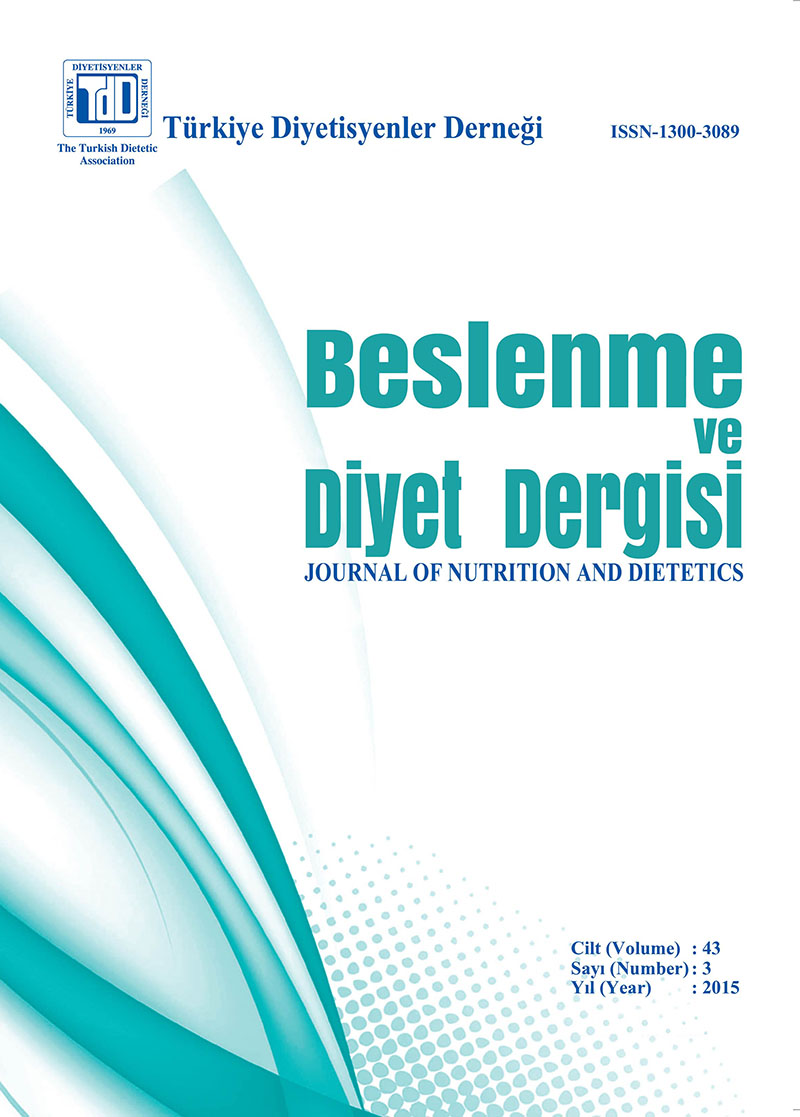An Evaluation of Malnutrition and Nutritional Status of Children with Inflammatory Bowel Disease
Keywords:
Inflammatory bowel diseases, malnutrition, food intakeAbstract
Aim: Aim of this cross-sectional study is to evaluate nutritional status and malnutrition of children with inflammatory bowel disease. Subjects and Methods: This study was conducted on 45 volunteer pediatric inflammatory bowel disease patients (n=18 ulcerative colitis, n=27 Crohn’s disease) at Hacettepe University İhsan Doğramacı Children’s Hospital, Division of Pediatric Gastroenterology, Hepatology, Nutrition. 24-hour dietary recall were determined, food frequency questionnaire were applied, anthropometric meauserements were performed. Disease severity was evaluated by specialists using PCDAI (pediatric chron’s disease acyivity index) and PUCAI (pediatric ulserative colit acyivity index). Data analysis were performed using BeBİS 6.1, WHO AnthroPlus and SPSS 15.0. Results: 11.1% of patients were stunted, 28.9% were short according to height for age Z scores. 8.9% of patients were severely underweight, 8.9% of patients were underweight, 68.9% of patients were normal, 8.9% of patients were overweight, 4.4% of patients were obese. Height for age Z score were negatively correlated with cumulative corticosteroid dose (r=-0.365, p=0.022). BMI Z score were negatively correlated with age of onset (r=-0.298, p=0.047). Energy, protein (g/kg), dietary fiber, vitamins A, B1, B2, B3, B6 and folic acid, magnesium, phosphorus intake in percent of daily recommendation were significantly lower in moderate-severe patient group than both remission and mild group (p<0.05). Conclusion: Nutritional status and food intake should be monitored regularly in pediatric IBD. Individualized nutritional intervention should be performed throughout the follow-up if necessary.

